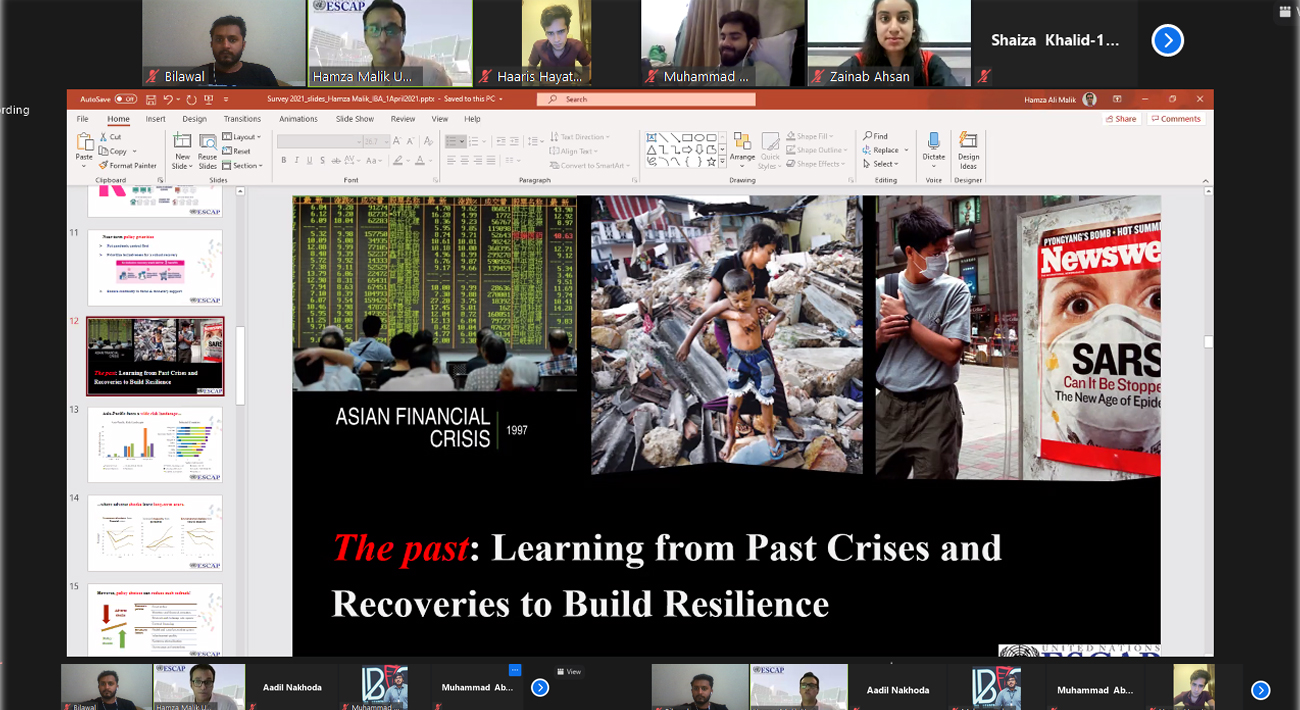IBA students of International Trade learn about healing economies post COVID-19
April 1, 2021: Dr. Hamza Ali Malik, Director of the Macroeconomic Policy and Financing for Development Division at United Nations Economic and Social Commission for Asia-Pacific (ESCAP) countries visited the IBA Karachi and delivered a guest speaker session to the students of the International Trade class.
Dr. Malik leads ESCAP's research, which analyzes the economic scenarios and proposes potential policy options and optimal financing outcomes that promote sustainable development in these countries. In the session titled, 'Towards post COVID-19 resilient economies', Dr. Malik's discussion focused on how the ramifications of the COVID-19 pandemic had exacerbated the financial as well as socio-economic situations in the Asia-Pacific economies.
While the speaker recognized how the pandemic crisis has corroded the financial health of economies throughout the globe, he also emphasized on how the pandemic has facilitated permanent economic contractions across the Asia-Pacific region and other developing economies. Interestingly, Dr. Malik anticipates a K-shaped recovery from the contemporary crisis, which may further amplify the inequality gaps between North and South economies.
Dr. Malik shared his optimism on how brighter economic conditions may erupt if effective macroprudential policies were taken into consideration. He highlighted how risk management remains key to national development planning and policymaking, stating how policymakers should prioritize inclusiveness for a robust and sustainable recovery of economic development. Therefore, effective financial regulations, climate-resilient infrastructure, and the assimilation of macroeconomic policies towards similar economic agendas must remain key priorities of developing economies, which remain relatively vulnerable to adverse systematic shocks.
Dr. Malik also stated that disbursements on social services, digital access and climate action remain pertinent to a stronger recovery in the aftermath of the pandemic. However, to implement such a policy package, countries must build sufficient fiscal space and explore favorable financing opportunities.


